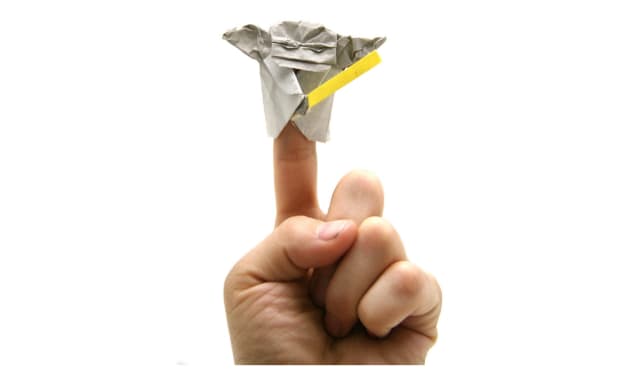"To be or to be not, that the question is..."
Easy attempt to understand a complex world.

The world is changing, changing dramatically, on our eyes, and it is quite obvious that a human is directly involved and is the main factor behind these changes.
But what is this factor?
...
- Attention! This material is not intended for entertainment. My goal in writing articles is one — stimulate your mind to think, and to aware of the importance and necessity of personal development. The importance of leaving the comfort zone (whatever it may be) to take part in creating a better world, maintaining and developing the highest achievements of humanity — the fate of the world depends on each of us.
“There is one — there will be millions, then!”
...
Those of us who live in the real world (not in the illusory one) definitely understand that changes can be mostly positive and negative. “Mostly” because there is hardly any change is “absolutely” positive or negative, and this is the difficulty of its assessment. Positive changes lead humanity and the whole world (as an exceptional environment for our dwelling) to a better being while negative ones, in the best case, slow down the development, and in the worst, threaten the existence of not only humanity but the world as a whole.
Everything seems to be simple (I don’t think that there is at least one mentally healthy person who wants to bring the demise of the world closer) — it is necessary to create positive changes, or rather (since only positive changes are utopia), create a balance in which positive changes will compensate the impact of negative ones and at the same time maintain movement in the right direction.
However, this is hardly what we have at the moment — the world is developing, technical and intellectual progress is gaining astounding speed, but at the same time, existing contradictions are intensified and escalated, new conflicts arise, at the base of which are deepening differences in worldview, and the threat to habitat becomes catastrophic.
In general, everything looks like that we have come to a certain critical line, to a pivot in our development, a fork that can either bring humanity to a qualitatively new level of development or stop progress for many years or even put humanity and the whole world on the brink of survival.
Do not agree? Then it seems that you have problems with scaling and a holistic perception of reality: conflicts, wars (hybrid and conventional), epidemics, financial and economic difficulties flowing into crises, lack of trust between political forces and countries, the rise of populism, migration waves, isolationism, protectionism, shaking the foundations of democracy in both hemispheres, thoughtless exploitation of natural resources, which is beginning to bring its “fruits”, a lie that becomes truth and truth that cannot be distinguished from a lie, and so on.
And if you do not understand this or consider it all insignificant or not relating to you personally, then you are trying “under a napkin from the downpour to hide” — the consequences sooner or later will overtake you too.
...
Why is it that way? Why, instead of confidently moving towards building a healthy, progressive, harmonious, just (and not at all about utopian concepts) world, mankind constantly goes to extremes, which bring serious dividends in one, but become destructive in another?
Why, instead of demonstrating all the virtues of the “end product of evolution” and the “Tsar of Nature”, we behave like primitive and cruel exploiters who do not care about tomorrow at all? At least a large part of us…
The answer, how banal it may sound, is simple and complex at the same time — it’s up to us, in our worldview, our relationship with each other and the world around us, the degree of our interest and involvement, both in local and in global processes, in deep awareness (or ignoring) that it is not enough just to wish for changes in the world (or watch them), but also to change ourselves, and not as a result of such changes, but to anticipate them and be their source — “The world as we treat, to us the world treats also!”
...
Most of us habitually believe that our individual influence on world processes simply does not exist, or it is completely insignificant — it’s hard to argue with this, but as long as we think so, it will remain so. In fact, the world is controlled and influenced by not only political or financial giants (or lilliputians :-)), as it may seem, but also active, purposeful people. If the goal is simple and understandable for a sufficient number of such people located in close geographical or political locations, a synergy arises, transforming into a powerful driver capable of changing society, state, world, finally, as has happened in history many times — it is an active minority is the main driving force of any society, creating conditions under which an inert majority is involved in the process, which reinforces, legitimizes the changes, or, by inaction, rejects the ones.
- What is an inert majority — this is a part of society (most of any society, the difference is only in proportions depending on the type of society), the main characteristics of which are inertia, lack of interest in everything that does not concern personal interests. The world of such people is usually limited to the framework of personal involvement and very narrow temporal and spatial boundaries, which is most often the result of lack of personal development. They often lack critical thinking, make value judgments based on personal sympathies (available information is used rather confirm existing beliefs, but not to correct them), are easily manipulated, propagandized, in general, are the main target (and victim) of populists and every kind of rogue and hypocrite.
It is on the activity/inertness line that most of the contradictions and misunderstandings arise, which become fertile ground and fuel for conflicts, since in fact, these are two, seriously differing from each other, types of thinking — two different worldviews, one of which is based on the vertical type of relationship, when a person voluntarily delegates a significant part of one’s civil rights and obligations to some kind of authority-sympathetic in exchange for a certain (real or perceived) stability of one’s personal “world” (in other words, some the similarity of feudal relations, in which the main signaling role is assigned to the system friend/foe), and horizontal, based on equality and openness. It can be said that this is a difference in the choice of civilization — the inert are trying with all their might to retain what they own (tangible and intangible), the active are trying to create a new value.
- Here, I want to make a very important clarification — we are not talking about “absolute altruism”, this way is possible only for people who are aware of their mission in this and see ways to accomplish it, for everyone else this is the way to self-destruction.
- To my mind, a normal person should be healthy or an objective egoist — put one’s own interests and the interests of one’s own surroundings above the interests of the others.
- However, objective egoism will allow us to correctly assessing these interests and the required resources, reasonably put them to life, and also realize that personal interests are always in a relationship with more global interests — society, state, and the world. In general, you need “to see, that mountains beyond the sea there are or, at least, to understand, that they exist”.
- I also omit the mention of the active part of society’s radical components of various kinds, relationships, conflicts between them and the impact on the inert majority — this topic always remains relevant, and requires more detailed coverage.
It should be noted that it is unlikely that the task of defining these types is simple — they may look the same (and surely some will not have horns and hoofs, and others will not have a halo :-) ), they may have a similar education and represent the same layer of society, they can act in a similar way — their main difference from each other lies in the field of motivation and values.
...
And here we come to a moment that defines the very essence of our existence — “To which part of society I belong — to an active minority or to an inert majority?”
How to understand?
In fact, everything is quite simple — if you are able to intelligently ask yourself this question (as, indeed, any other philosophical question like “Who am I?”, “What is the meaning of life?” or “What is the purpose of my existence?”) it means that you are either already in the number of active, or in the process of transformation from inert.
Such a transformation is not an easy task at all, since, in fact, it is a cardinal change in the type of thinking, worldview, and lifestyle, and may take a large amount of time (and really, all your life, since this is a way of perfection). But if you set foot on this road, it will be very difficult to stop (though not impossible, unfortunately).
- It should be noted that the transformation of consciousness is apparently the most difficult (and, obviously, the most important) part in the process of personal development — on the one hand, almost every one of us has a certain understanding of the need for development and even the desire to do so (and this is probably an innate quality). On the other hand, such development is most often limited to cosmetic changes, since fundamental changes require constant serious revision of the basic criteria for assessing being, objectivity in any actions, self-criticism, and readiness to change wrong beliefs. It is unlikely that everyone is ready (or even capable) for this.
Nevertheless, this way, or rather the possibility of this, I think, is one of the most important aspects of our being.
...
In my opinion, the main driver of the transformation of consciousness is (or should be) honesty — honesty towards oneself, honesty towards others, honesty towards the world.
And although honesty is a relative concept, an objective view of all aspects of life is connected with it.
Objectivity, in turn, allows us to assess correctly the advantages and disadvantages of any action and its consequences and make choices that may be confronted with personal interests, but be more important from a global perspective.
Of course, neither honesty nor objectivity can arise by themselves. They need the right soil in the form of knowledge, experience, skills, in other words, an integrated approach to life, which is expressed in personal development and awareness of its necessity as a starting point. But this awareness itself is unlikely to arise from scratch, for this you need to have at least dissatisfaction with the current state (physical or social, which requires the development of observation and analysis) or thirst for the new.
...
What can help in personal development?
Factors that have long been known, the value of which is different, but always exists — positive thinking, proper sleep, physical and mental activity, pleasure, self-confidence, diet, meditation, breathing practices, rhythm, cyclical, etc.
Something is absolutely necessary, something can complement.
“Start a movement, a way will be!”
...
And yet, what should be our life and our relationship with the world?
- Here I express exceptionally my own point of view, far from a dictatorship. I try to be objective, but I understand that anyone can have their own opinion on the problems described and their well-established patterns of interaction with the world. To take something as useful or completely ignore everything I wrote, your absolute right.
Obviously, we should not be strangers in the world, outsiders in relation, at least, to processes that change our reality. We should strive to understand their nature, causality, and dynamics, try to participate in them, influence them, predict and correct the consequences.
We must be responsible, decisive, courageous and fair and full of the realization that our actions have weight and influence the course of history.
We must create communities of like-minded people (size, in this case, is of secondary importance, the quality and functionality of groups are more important) in order for our influence to be more powerful, in attempts to create a just world. A world based on progress, harmony, equality, opportunities for self-realization for all, regardless of starting points, on respect among people and caring for the world around us, including the animal world and nature, in all its manifestations.
“If to change the world you want — first yourself must change!”
...
- This article is the result of my deeply subjective reflections, observations of the surrounding and my inner world, the attempts to establish simple causal relationships and create an understandable model of the world. Your right to accept these ideas and draw your own conclusions, or completely ignore them and go your own way.
“May the force be with you!”
About the Creator
Smаrtus Yоdus
"Beyond the stars only stars are!"
In looking for answers...
Enjoyed the story? Support the Creator.
Subscribe for free to receive all their stories in your feed. You could also pledge your support or give them a one-off tip, letting them know you appreciate their work.






Comments
There are no comments for this story
Be the first to respond and start the conversation.